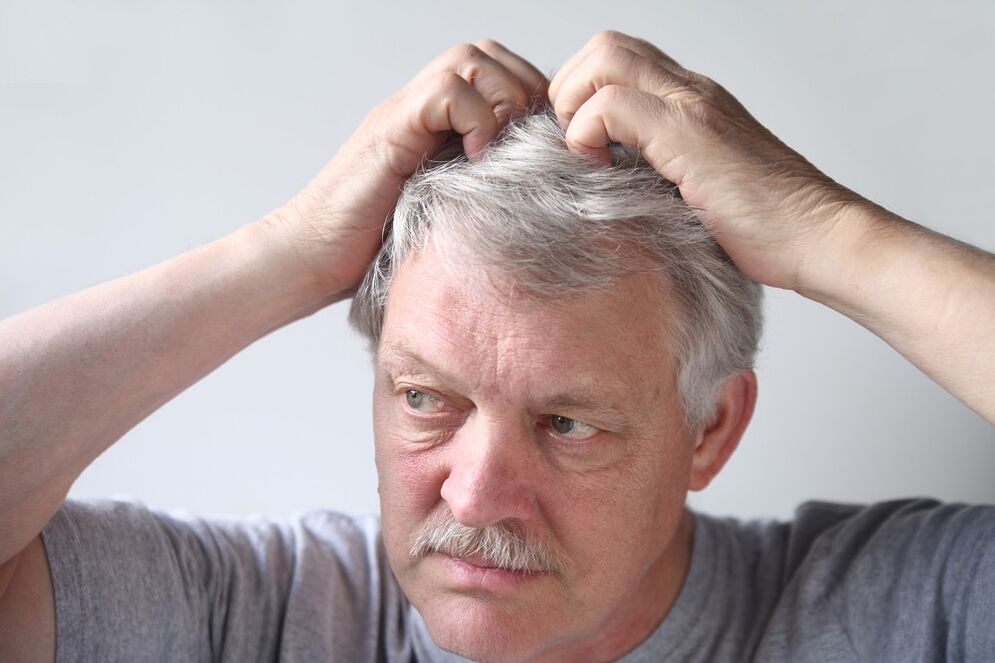
It can occur at any age, but the first symptoms usually appear gradually, between the ages of 15 and 35.
The infection can be very disturbing due to the nasty spots that appear all over the body, which can also cause discomfort and sometimes pain. Its manifestations can vary in degree from scaly patches reminiscent of some dandruff to rash-like skin surfaces. Psoriasis most commonly develops on the elbows, knees, waist and head. Pits or other unevenness may appear on the nails. The rash can manifest in a variety of ways, including pustules, skin tears, itching, and scratches. Psoriasis is not contagious.
signs and symptoms
- Dry red patches on the skin covered with silvery scales.
- Small smooth spots (more common in children) all over the body.
- Swollen and tight strips.
Warning signs and symptoms
Redness and hair loss all over the skin.
Psoriasis is a common skin disease that affects the life cycle of cells. It usually takes about a month for new cells to appear from the lower layer of the skin where they form. They are destroyed on the outside and separated by tiny particles. In psoriasis, the whole process takes a few days: the cells die quickly and hairless patches spread on the skin covered with a thick crust.
In 10 cases, arthritis is accompanied by psoriasis. For most of these people, the effects of psoriasis on arthritis are minimal. There is some pain in the affected joints but no effect on the health of the whole body. This pain rarely limits mobility, similar to rheumatoid arthritis.
Cause
In psoriasis, skin cells multiply rapidly to form a thick, less cohesive layer of skin. This usually does not happen until treatment is intervened.
Factors causing the development of psoriasis:
- Systemic disease (such as tonsillitis).
- The immune system's response to disease.
- Skin damage.
- Reaction to a drug or vaccine.
- Tension.
- Excessive alcohol consumption.
- Environmental factors such as direct contact with sunlight or chemicals (disinfectants, paints).
Doctors suggest that psoriasis is a disease that is caused by a number of factors and is inherited. But scientists have not yet fully figured out how much it relates to the genetic apparatus.
Diagnostics
Psoriasis is usually diagnosed by physical examination. Your doctor may need a skin cell sample for analysis to determine the nature of the disorder and the possibility of fungal infections.
Treatment
Psoriasis is very difficult to treat for one reason - there are many types of psoriasis depending on the type, severity, and response to treatment. Each has its own characteristics and each requires a special approach, so the doctor has to deal with each case for a long time. The goal of treatment is to regulate the growth and maturation of skin cells. In mild cases, moisturizing soaps, shampoos, body lotions and ointments are sufficient.
The treatment can be performed with the following:
Creams and ointments
Calcipotriene ointment, which contains vitamin D, is usually prescribed to control the overproduction of skin cells. It is a medicine used to treat mild to moderate psoriasis. Another option is treatment with retinoids such as tazarotene. Your doctor may also prescribe medications that contain a narcotic steroid and a resin.
Preparation of external administration
A second-generation retinoid can help slow the growth of skin cells in severe psoriasis. Great care should be taken with this medicine because it can cause side effects such as eye and lip irritation, hair loss, excessive sun sensitivity, and making it difficult to give birth if taken by a pregnant woman.
Another drug in the group of antimetabolites that stops the growth of skin cells in psoriasis is a drug that blocks the immune system. These medications can also cause side effects, including kidney and liver damage, and are usually used only in the most severe cases.
Phototherapy
Psoriasis ointment with ultraviolet A (PUVA), a combination of photosensitive drugs, ultraviolet A (UVA) together suppresses the growth of skin cells in some cases of psoriasis. But long-term PUVA treatment (250 times or more) may increase the risk of skin cancer, including melanoma, a potentially fatal form of skin cancer. Sunbathing on a warm day (taking into account that every precaution has been taken to avoid burns) and the use of coal tar in combination with ultraviolet B radiation (Heckermann method) are also effective treatments. Another form of light therapy, called "narrowband ultraviolet B" (NB-UVF), can be as effective as PUVA and does not require medication before each session. It does not develop a predisposition to skin cancer like PUVA.
Body care
To keep your disease under control, you need to do the following:
- Eat foods fortified with vitamins, relax for as many hours as your body needs, and exercise regularly.
- Maintain a healthy weight. Psoriasis often appears in the folds of the skin in obese people.
- Do not rub or scratch areas with psoriatic lesions.
- Wash dead cells every day. Avoid hot water or hard soap.
- Hydrates the skin. After bathing, smooth the skin, immediately apply an oily moisturizer while the skin still contains a lot of moisture. Do not use body lotions or creams that contain alcohol. Use air conditioning and always keep the room temperature cool.
- Use soap, shampoo and ointment containing liquid charcoal and salicylic acid.
- Sunbathe on a moderate day, but avoid sunburn.
- If the symptoms of the disease are extremely pronounced, use a cream containing 0, 5-1 percent cortisone for several weeks.























